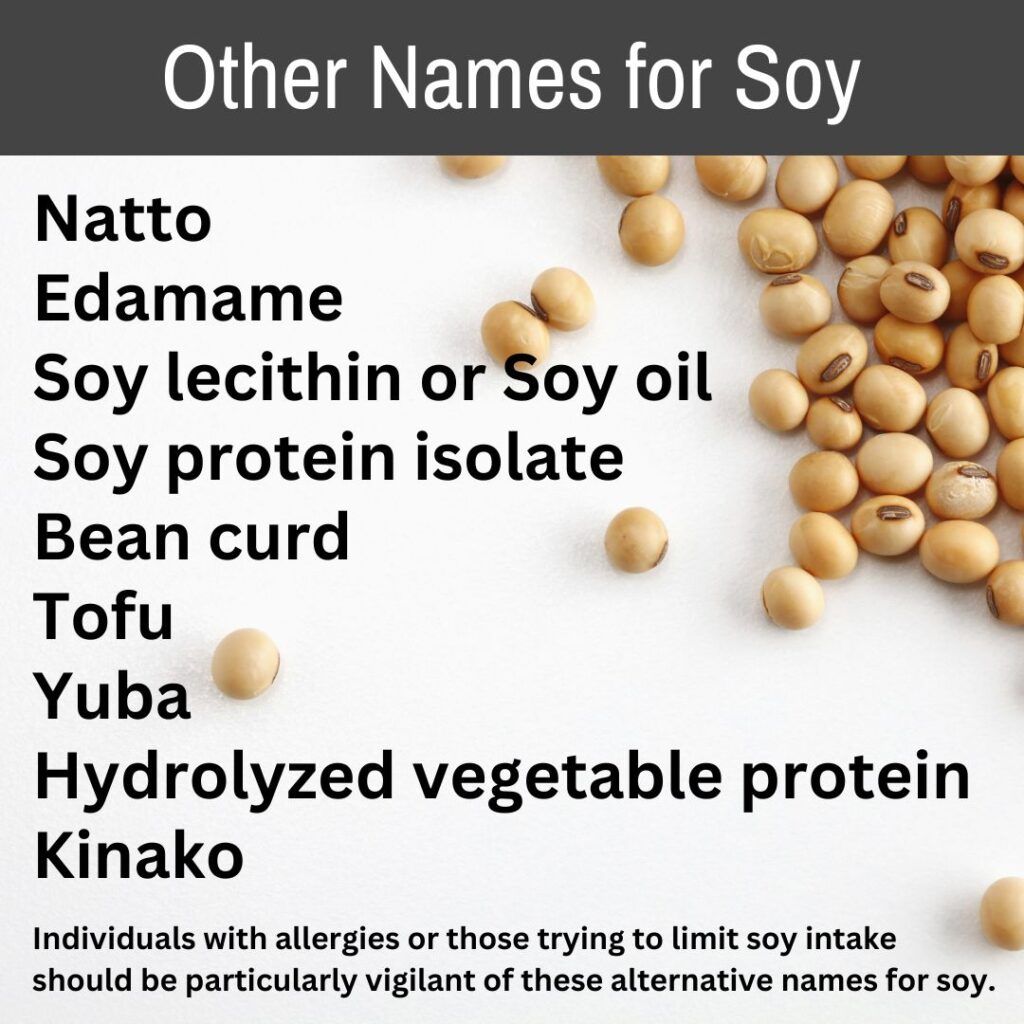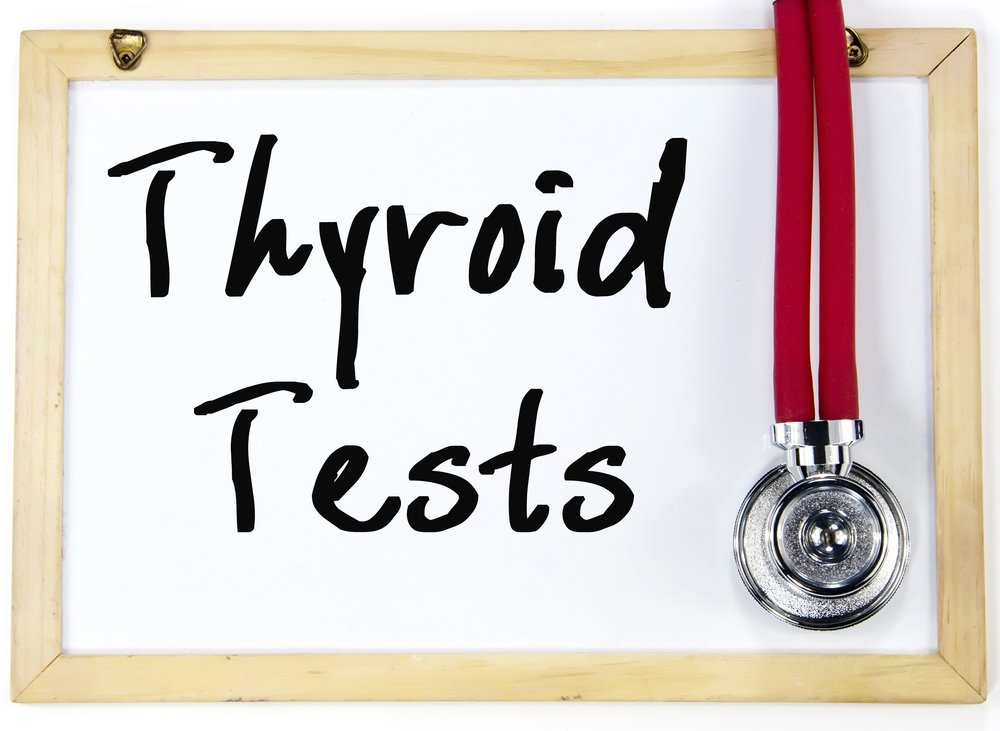What's On This Page?
ToggleA lot of people with thyroid disease have to avoid dairy due to allergies. Many people turn to alternative foods with a soy base. Vegans and vegetarians also consume these types of foods. There is much you should know about this particular food group if you are dealing with a thyroid gland issue.
When dealing with a thyroid condition, I usually suggest a keto-friendly or even a more stricter “keto-carnivore” diet because it’s lower in carbs and has fewer antigenic proteins that could trigger autoimmunity.
But as it pertains to soy-based diets, you may enjoy the benefits, flavor and ease of use. It makes a nice substitute for non-meat eaters. I get it! So let me help you navigate your thyroid health if you are going to eat a lot of it. It does get a little complicated.
If you are new to the world of investigating thyroid disease, you may want to start with my broad-based article entitled, The Anatomy and Function of the Thyroid Gland – A Pharmacist’s Perspective.
The relationship between soy products and hypothyroidism is nuanced. It contains isoflavones, which are phytoestrogens (plant-based estrogens) that can act as endocrine disruptors, potentially interfering with thyroid function.
These compounds have been shown to inhibit the enzyme thyroid peroxidase or TPO, which is involved in the synthesis of thyroid hormones. You need TPO. You cannot make T4 (thyroxine) without it! Give me a moment to explain more.
TPO and Thyroid Hormone Production
Thyroid Peroxidase (TPO) is a key enzyme in the production of thyroid hormones. People with Hashimoto’s or Graves’ disease have antibodies against this enzyme which plays a crucial role in two main reactions:
- Iodination of Tyrosyl Residues: TPO adds iodine to tyrosine residues in thyroglobulin, a thyroid protein, forming monoiodotyrosine (MIT) and diiodotyrosine (DIT) in a process called organification.
- Coupling Reaction: TPO catalyzes the combination of iodinated tyrosines within thyroglobulin to produce thyroid hormones T4, from two DIT molecules, and T3, from one MIT and one DIT molecule.
After these reactions, thyroglobulin, now containing T3 and T4, is stored in thyroid follicles (the follical is your thyroid gland’s hormone-producing unit). When your body requires thyroid hormones, thyroglobulin is taken back into the thyroid follicular cells and broken down to release T3 and T4 into the bloodstream. That will make you feel more alert, energetic, happy, and properly warmed!
You May Have Antibodies to TPO
TPO is essential for the synthesis of thyroid hormone. Autoimmune disorders affecting the thyroid, such as Hashimoto’s thyroiditis and Graves’ disease, often involve the production of antibodies against TPO, thus destroying proper thyroid hormone production. If you have Graves’ disease you may be interested in my other article, The Secret Nutrient that Drives Graves’ Disease.
The exact impact of soy on thyroid health can vary depending on several factors, including the amount and type of soy consumed, your individual health status, and whether or not you have adequate iodine in your body. Here’s how intake impacts different situations.
For Individuals with Hypothyroidism:
The potential negative effects of soy on thyroid function are more pronounced if you have iodine deficiency. You may not even know if you have this, but it’s not that hard to figure out. For folks with adequate iodine intake and levels, moderate consumption of this legume-based protein source won’t significantly affect thyroid function. But again, if you have iodine deficiency, the intake will make you feel worse. I have another article of interest that you can read at your leisure, Iodine Testing Simplified: Top 6 Iodine Testing Methods Available Now.
Effect on Thyroid Medication:
Soybean-based food products can interfere with the absorption of levothyroxine (Synthroid® is one brand) a common medication used to treat hypothyroidism. Patients on this drug are often advised to take their medication several hours apart from consuming soy products to avoid this interaction. Most people on the drug have no idea of this food-drug interaction!
So let me help you because I can imagine that some of what I’ve shared is confusing. People with hypothyroidism don’t necessarily have to completely avoid soybean, especially if you love these types of foods and want to include them in your diet. It’s more about moderation and being mindful of overall dietary balance.
Just monitor your thyroid function: If you have hypothyroidism, you should monitor your thyroid function and levels regularly (assuming you are consuming these food products frequently). That way you can see if your levels are in the healthy range or not. Adjustments to thyroid medication dosage may be necessary if your dietary soy intake compromises your levels.
Work with a doctor to change your medication dose and discuss your diet. A dietitian or a doctor can offer guidance tailored to your needs much better than I can being that this blog is simply for educational purposes, not medical advice that should be tailored to your individual needs.
Let’s talk about the foods involved because you may not even realize what contains this ingredient, it’s not always obvious. When trying to identify soybeans in food products, it’s important to read ingredient labels carefully. There are various names that you should know about, see my graphic here.

Obvious Food Products
Soy Milk: A popular dairy milk alternative made from soybeans.
Tofu: Made from condensed soy milk that has been pressed into solid white blocks; varies in firmness and can be used in a wide range of dishes.
Tempeh: A fermented soybean product with a firm texture and nutty flavor, often used as a meat substitute.
Edamame: Young soybeans that are often steamed or boiled and served with salt.
Soy Sauce: A traditional Asian condiment made from fermented soybeans, wheat, salt, and water.
MISO: A paste made from fermented soybeans, often used in Japanese cooking to make soups and sauces.
Soybean Oil: One of the most commonly used cooking oils in processed foods and restaurants, often labeled as vegetable oil.
Less Obvious Items: Processed and Packaged Foods
Meat Substitutes: Many vegetarian and vegan meat substitutes, including burgers, sausages, and nuggets, are made from soy protein.
Protein Bars and Powders: Soy protein isolate or concentrate is a common ingredient in protein bars, shakes, and powders.

Dairy Alternatives: Yogurts, ice creams, and cheeses made with it.
Convenience Foods: Ready-to-eat meals, frozen foods, and canned soups may contain soy protein or its oil.
Natto: A soybean-based type of sticky ‘cheese’ with a very strong flavor. Common in Japanese cuisine.
Hidden Sources
Bread and Baked Goods: Soy flour or soy lecithin may be used as ingredients.
Vegetable Broths and Bouillon Cubes: Some brands use soy ingredients for flavor or protein content.
Cereals and Snack Foods: Breakfast cereals, granola bars, and many snacks might include soy lecithin as an emulsifier or soy oil.

Salad Dressings and Mayonnaise: Soybean oil is commonly used due to its neutral flavor and low cost.
Chocolate and Candies: Soy lecithin is often used as an emulsifier in chocolate bars and other confectioneries.
7 Ways to Navigate Soy
- Monitoring Thyroid-related Symptoms: Keep a diary of how you feel!
- Changes in Energy Levels: Feeling more fatigued or unusually energetic could indicate changes in thyroid function.
- Weight Fluctuations: Unexplained weight gain or loss can be a sign of hypothyroidism or hyperthyroidism, respectively.
- Mood Changes: Increased anxiety, irritability, or depression can occur with thyroid hormone imbalances.
- Body Temperature Sensitivity: Feeling unusually cold (hypothyroidism) or hot (hyperthyroidism) can signal thyroid issues.
- Changes in Heart Rate: An unusually slow or fast heart rate can be associated with thyroid dysfunction.
- Thyroid levels: Monitor TSH (Thyroid-Stimulating Hormone) as well as Free T4 and Free T3 Levels: These tests can help monitor what is happening in your body.

Summary
The short of it is that soy may reduce thyroid hormone production and contribute to thyroid disease, especially if you are iodine deficient. And then there is the allergenic potential of it. If this food is impacting your thyroid gland, you might notice changes related to thyroid function. Follow the 7 steps above if you love to eat these types of food.
People with hypothyroidism do not have to strictly avoid this stuff, but should consume them in moderation and be mindful of their iodine intake and thyroid medication schedule.
Consider the amount and frequency of consumption in your diet and monitor your levels. Regular monitoring of thyroid function and consultation with healthcare professionals can help manage any potential interactions between soy consumption and thyroid health.

Suzy Cohen, has been a licensed pharmacist for over 30 years and believes the best approach to chronic illness is a combination of natural medicine and conventional. She founded her own dietary supplement company specializing in custom-formulas, some of which have patents. With a special focus on functional medicine, thyroid health and drug nutrient depletion, Suzy is the author of several related books including Thyroid Healthy, Drug Muggers, Diabetes Without Drugs, and a nationally syndicated column.


